How Google Works - What we can learn from Google leaders from a G-Localization perspective
Last week I finished the How Google Works book.
I was a bit stuck with this book, not because it's a bad or boring book, quite the contrary! One does not have the opportunity to read every day the advice of people as important as Eric Schmidt and Jonathan Rosenberg who have had relevant positions in the leadership board of some of the most relevant companies worldwide; The reason why I was stuck was not the book, but rather the number of projects and initiatives that I attacked during January; that made me progress slowly in my reading. But last week I finished the book! Yay!
There is no more effective way for me to read more, than spending a week in Stockholm around -6 degrees, that triggers my consumption of pages, and of FIKA! 😋 Whereas when I'm in Barcelona at +16 degrees what shoots up more than my consumption of books is my consumption of beers and tapas on a terrace 🙃
Semla Swedish
Delicious bun while sipping a coffee and reading a book …. meanwhile outside -6 and snowing. Life is good 😉
Let's get to the point! I liked the book a lot because it is a great book on management and leadership.
The text covers a lot of topics that are important considerations for all businesses, including leadership, culture, hiring, communication, product development, and organizational strategy.
This year I proposed myself to read more books of this style, I think that these books are especially important for people who work in the G-Localization industry, why?
Well, because so many many of the people who work in this industry start as testers, translators, reviewers ... and little by little we are making our way to different positions of management and teams coordination such as Localization Project Manager, QA lead... Or in leadership positions Globalization Managers, Language Program Director, Head of Localization etc etc etc but the reality is that many of us find it hard to adapt to how to talk to a CEO or someone from the C-Suite when we explain what we are working on; We usually use a lot of jargon, a lot of unnecessary detail ... not because we do not know how to do it, but because we speak from passion and get lost in the details.
Books like this one from How Google Works written directly by CEOs, make me think, how to better explain what we do to a leadership team.
The index of the book is presented as a good summary of advice around different leadership areas
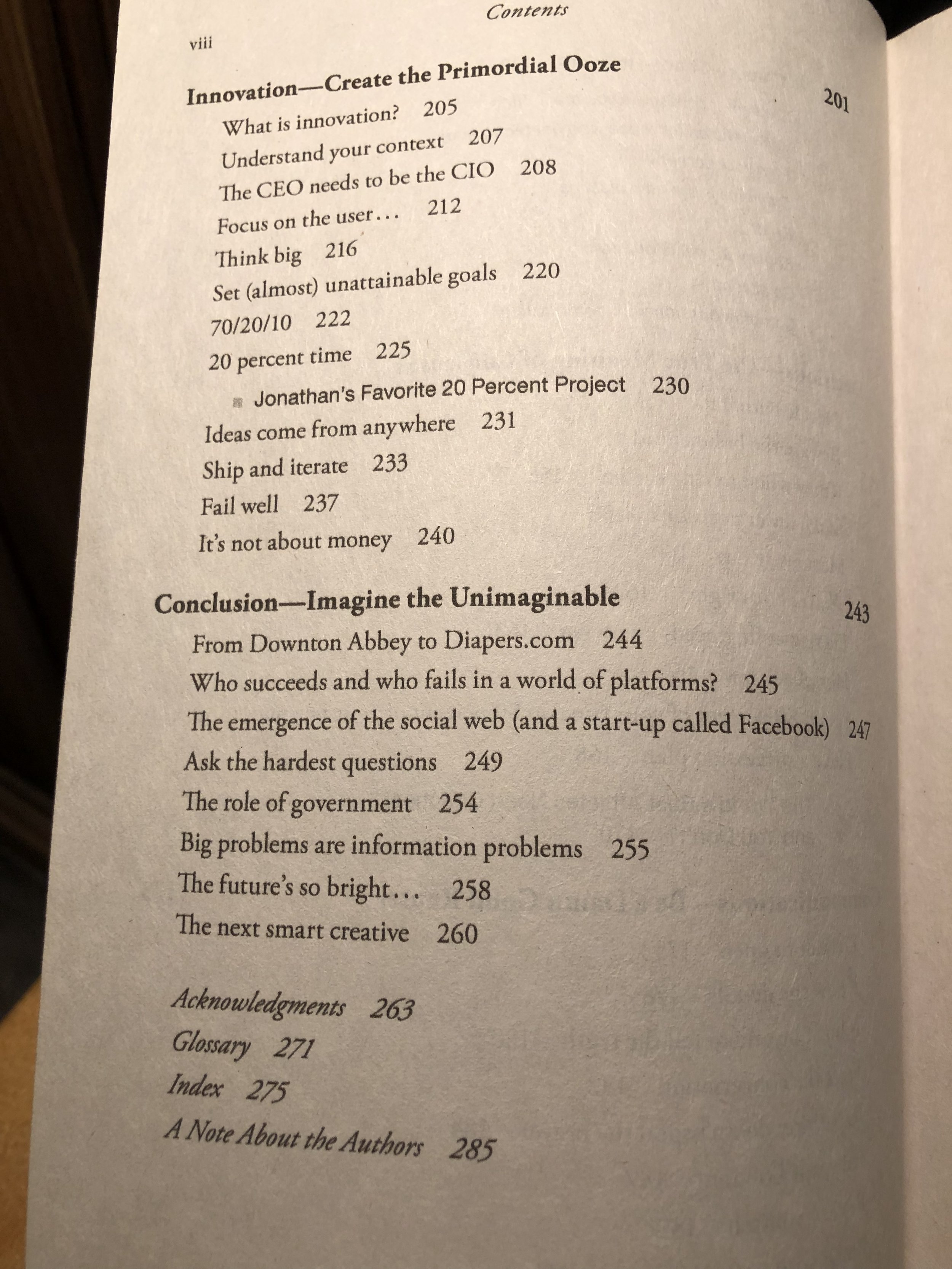
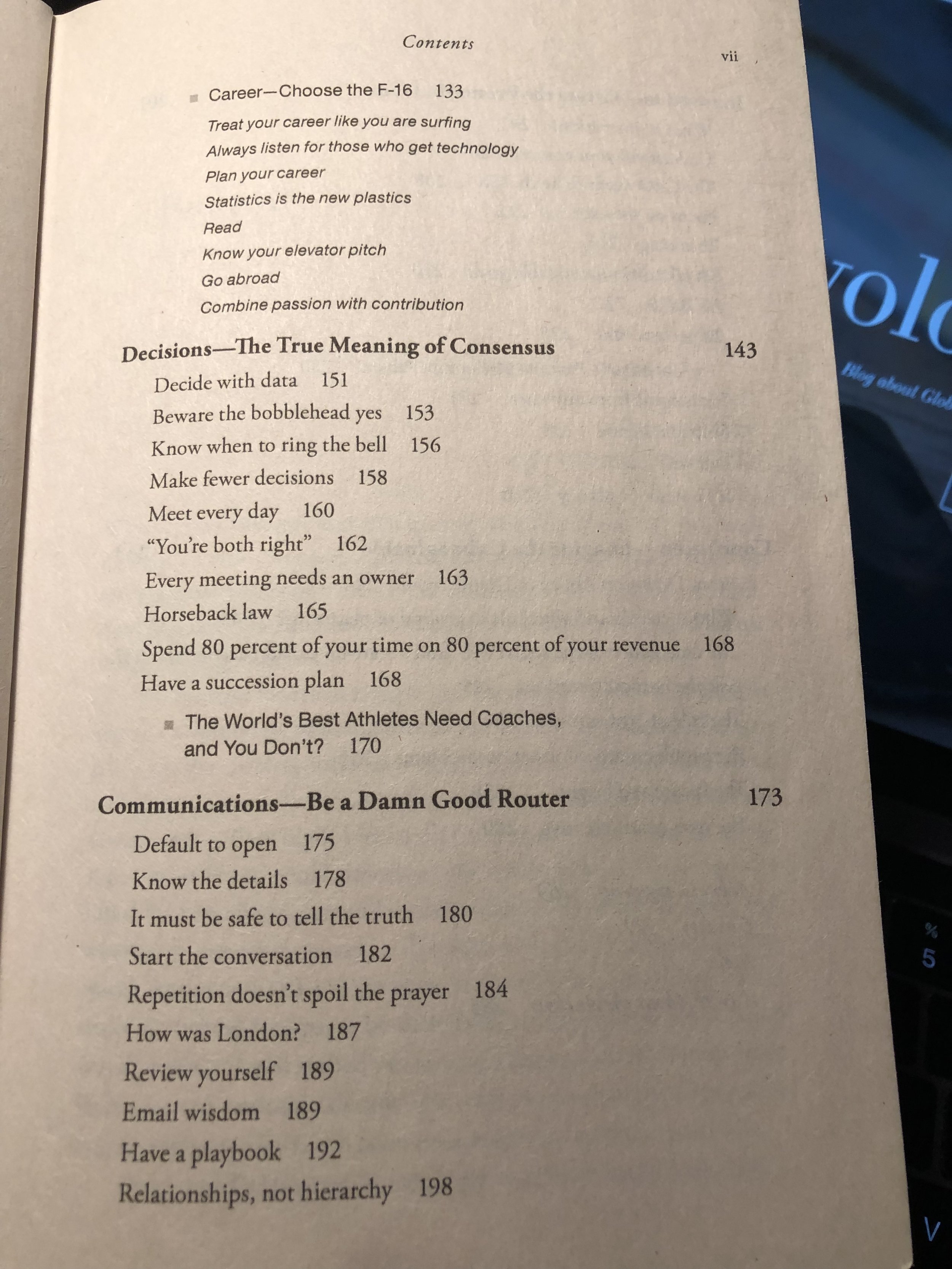
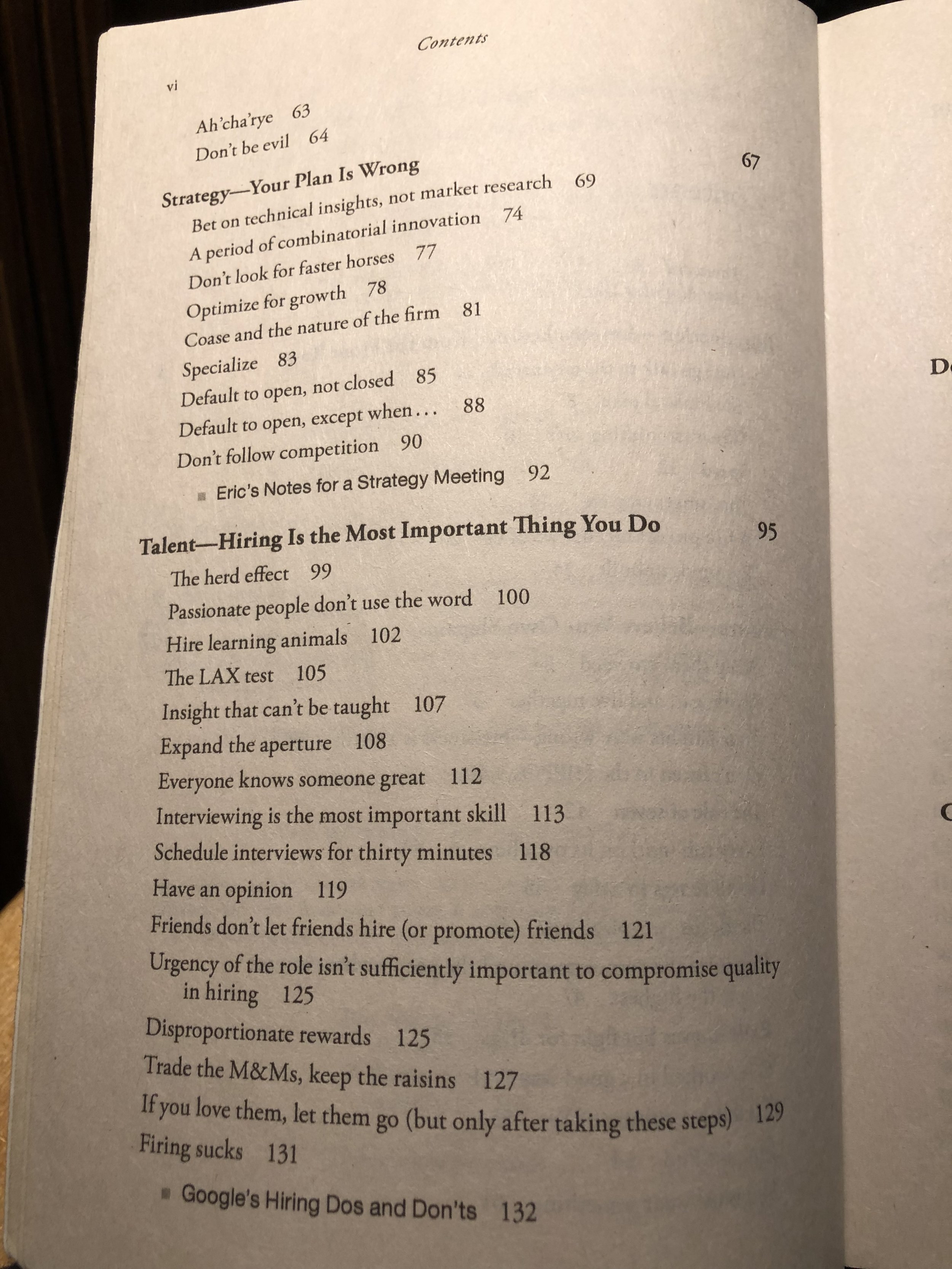
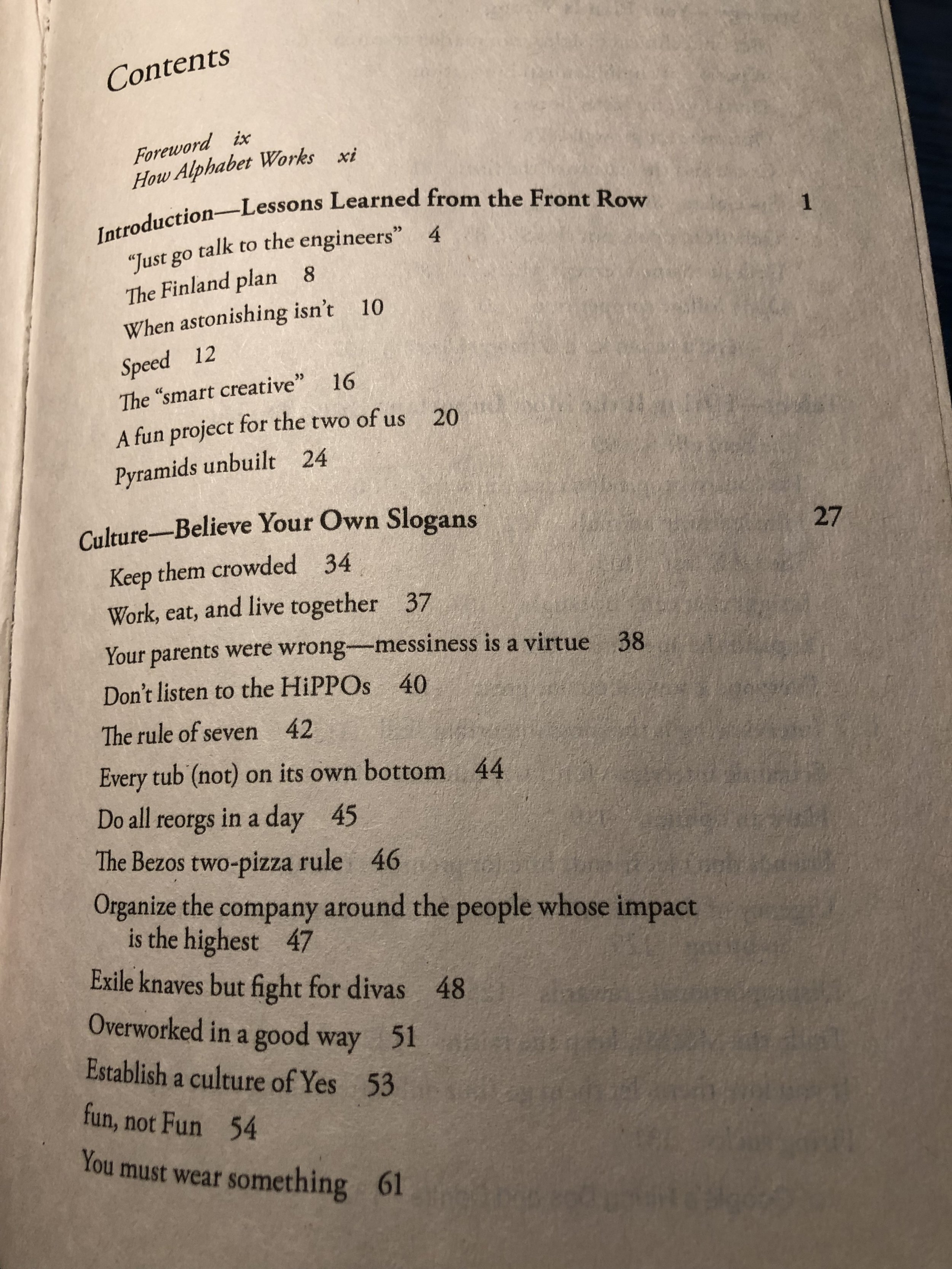
It also helps us to understand a little better how is the life of a CEO, because let's be honest, being CEO of Google should be slightly more complicated than implementing a Japanese font in a new app that we are developing 😅
Reading about CEOs can help us to be more effective in managing our teams, our Localization strategies.
CEOs-C-Suite also forces us to have a more data-driven mind, which is usually one of the biggest problems in our industry, we have many KPIs that help us monitor and optimize our processes and production rhythm or our quality. I.e. number of words per week, number of bugs per project, cost per language etc etc etc, but when we talk about the ROI of our teams, when we talk about the impact we have on the company, in the world, then the G-localization contribution might not be so clear.
In the book, Eric and Johnathan repeat many times"Decide with data" seeing this written so many times is good so that we force ourselves to be more pragmatic and have data that really help us. Also as an anecdote, it is commented that this executive profile when they meet you, after a cordial hello, and short chitchat will throw us questions as direct as
- What's going on in your job?
- What issues do you have?
- Tell me about a deliverable that you owe me.
These questions have a strong impact since they force the CEO to be on top of the details of their business. And it helps him know which of his team members are on top of the details on their business.
This book is an incredible opportunity to learn from two of the best in the world at what they do. If you're a startup founder, or anyone managing other people, looking to design systems to allow your employees to succeed without you peeking over their shoulders, this book will completely change the way you work. I can not recommend it enough.
Until you decide to read the book I have prepared HERE in this link an extensive summary; In no way is it a substitute for you to read the book, but you can use it as a complement or review the most powerful ideas of this brilliant book.
I hope you like it, I'm sure there are a few ideas that we can implement in our little world of G-localization.
Have a great week ahead!
@yolacalizo

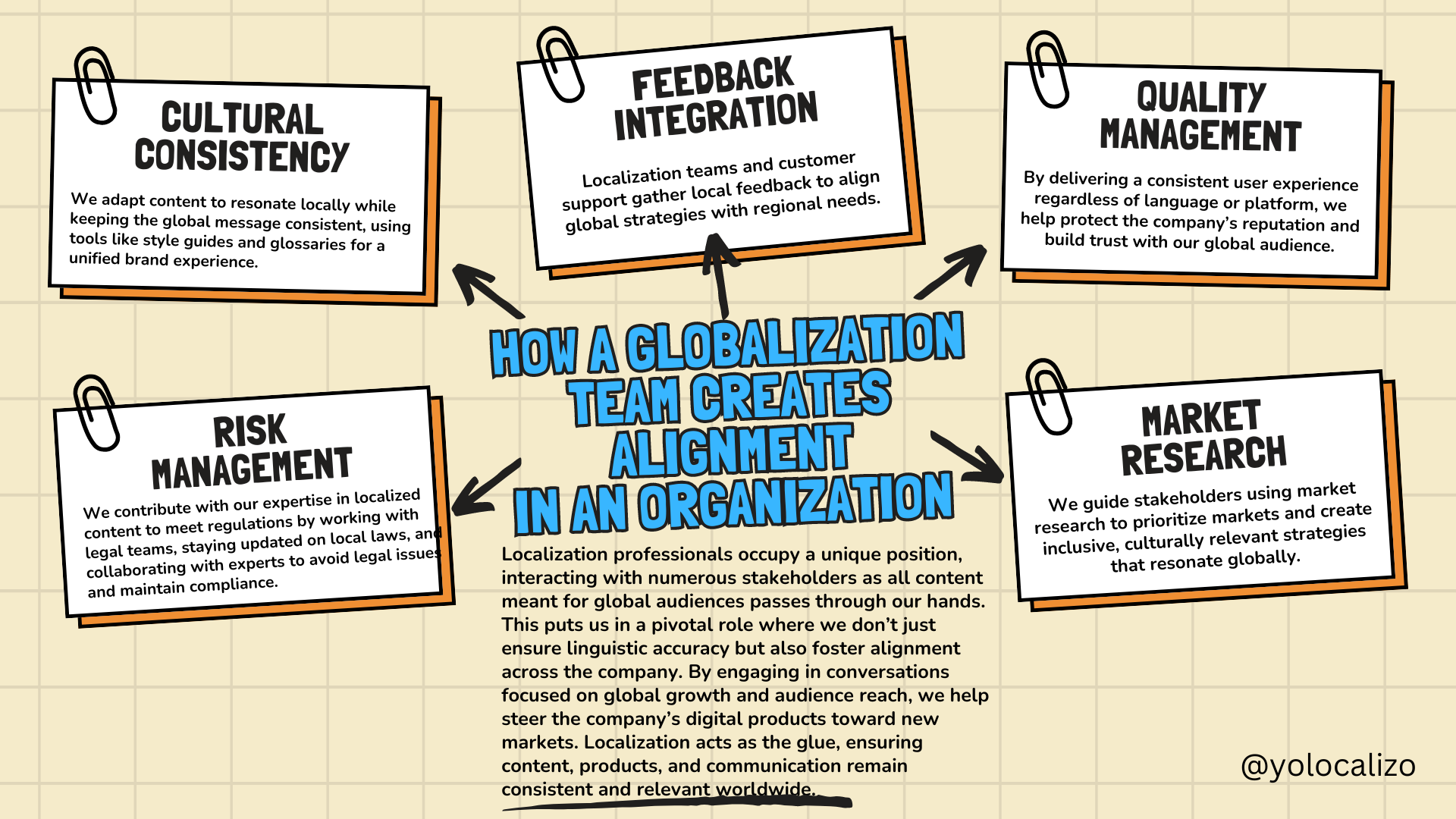
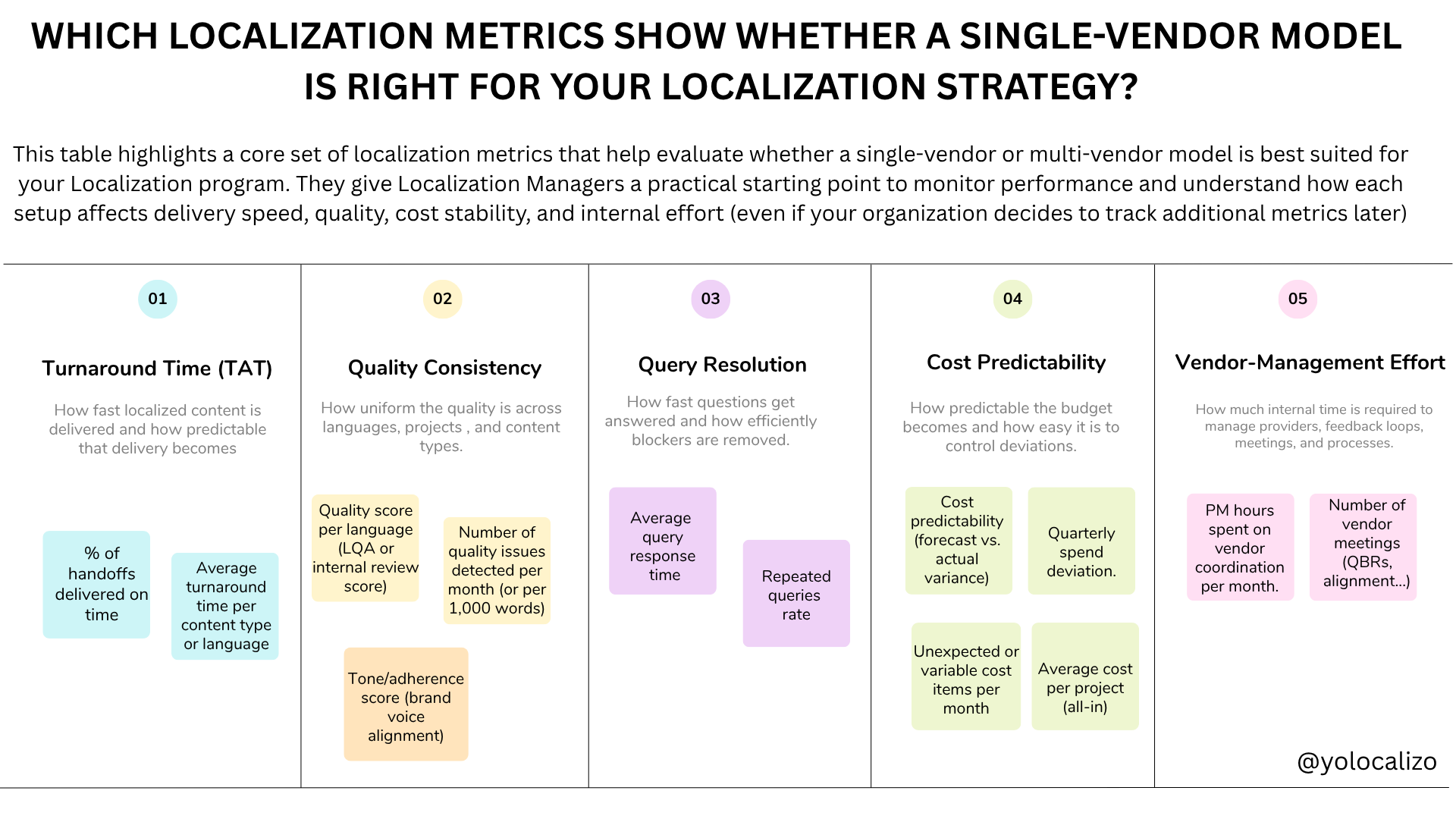




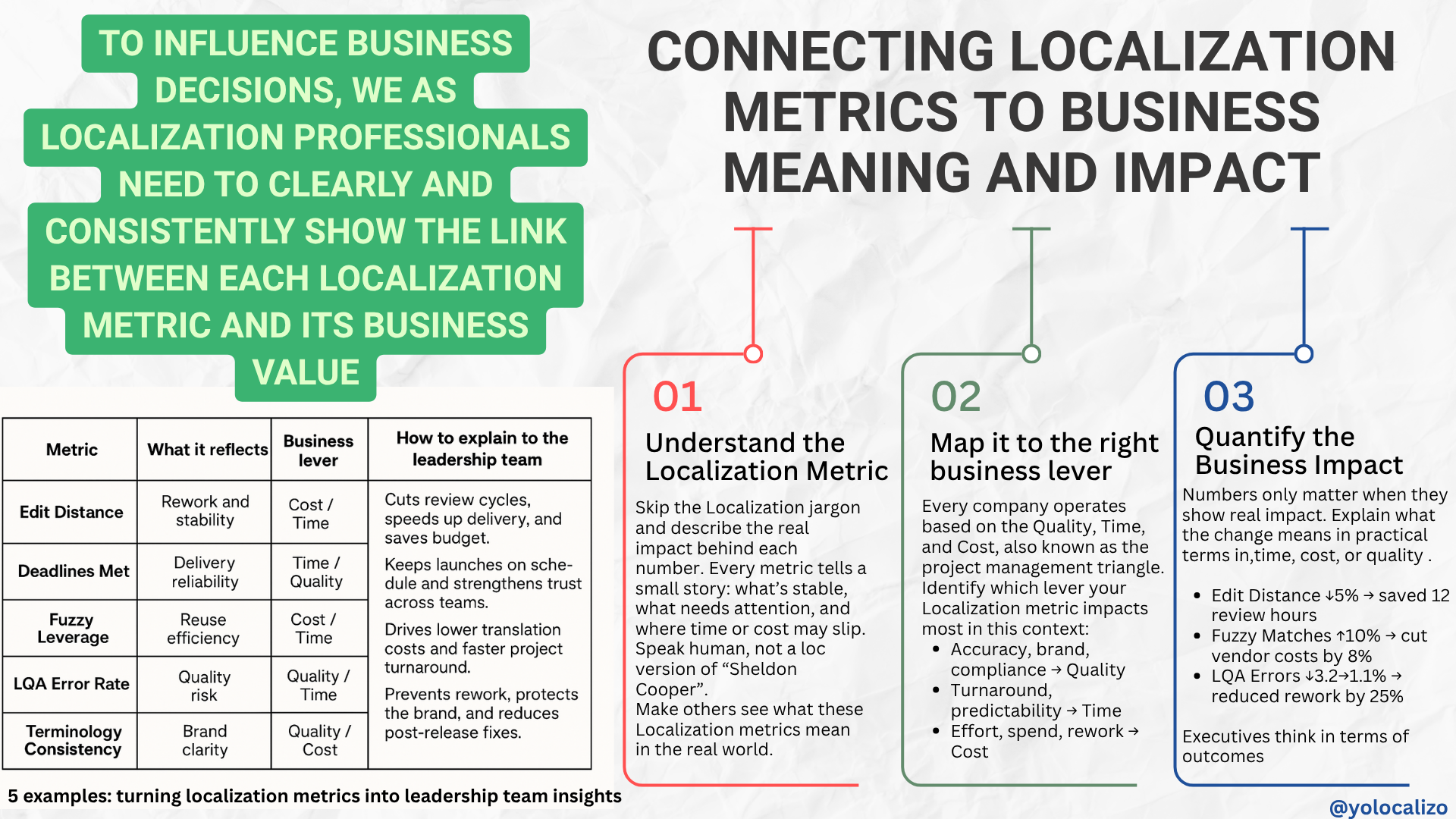










This feels like a pivotal moment. Localization teams are being asked to support more markets, move faster, use AI responsibly, and show impact, not just output. Expectations are higher than ever, but many teams are still trained mainly for execution. We are strong at delivering localization work, yet we often struggle to move from output to outcome and to clearly explain the impact of what we do.